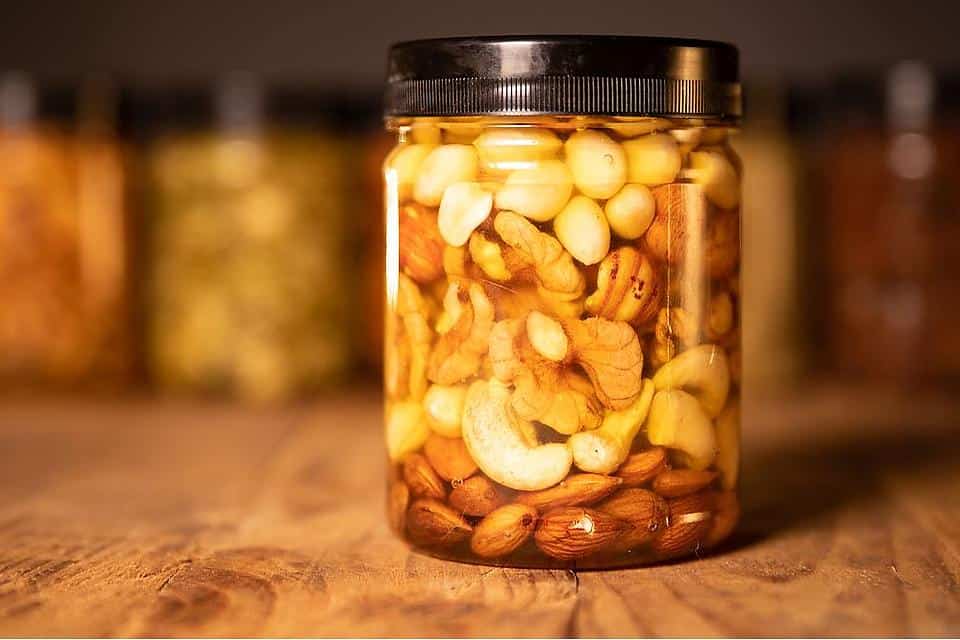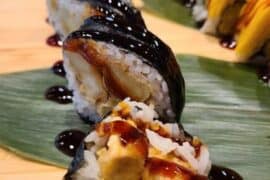Embark on a Nutty Adventure: The Wholesome Guide to Honey Nuts for Parents
Hey there, amazing parents! Are you looking to sprinkle a little bit of sweetness and a whole lotta nutrition into your family’s diet? Well, buzz with excitement because honey nuts are here to save the day! Let’s dive into this scrumptious topic and find out what makes honey nuts a delightful addition to your little one’s snacking options and how you can incorporate them into meals for that extra punch of flavor and health benefits.
What Are Honey Nuts?
First things first, let’s understand what we’re talking about! Honey nuts are delicious nuts that have been coated or glazed with honey – nature’s golden sweetener. This yummy combination not only enhances the nuts’ flavor but also adds a layer of sweetness that can appeal to both kids and adults alike. From almonds and cashews to peanuts and walnuts, any nut can be turned into a honey nut delight.
The Nutritional Powerhouse: Health Benefits of Honey Nuts
Honey nuts are more than just a tasty treat; they are little bundles of energy and nutrition. They’re packed with proteins, healthy fats, vitamins, and minerals, including magnesium, potassium, and zinc, which are essential for growing kids. Here’s a quick scoop on the health benefits of honey nuts:
- Energy Booster: Honey nuts are great for providing a quick energy boost, thanks to the natural sugars in honey and the protein in nuts.
- Heart Health: Most nuts contain monounsaturated and polyunsaturated fats, which are good for heart health when consumed in moderation.
- Brain Food: Certain nuts like walnuts are rich in omega-3 fatty acids, which support brain development and function.
- Antioxidant Properties: Both honey and nuts have antioxidants which help in fighting off oxidative stress in the body.
Introducing Honey Nuts to Your Child’s Diet: Safety First!
Now, before you start pouring honey nuts into every meal, let’s talk safety. It’s important to introduce nuts to children carefully, as they can be a choking hazard for younger kids. Also, some kids might be allergic to nuts, so it’s always recommended to introduce them to your child’s diet slowly and under close supervision. A pediatrician’s guidance is invaluable here.
Age Considerations
Typically, nuts can be introduced to children who are around the age of four and above. However, when it comes to honey, it’s recommended that children should be at least one year old, since honey may contain spores that can lead to botulism in infants. Combining these two wisdoms, honey nuts should be a treat for children who are at least a year old, with nuts given in a form that’s safe for them to chew and swallow.
Allergy Awareness
Keep an eye out for any signs of allergic reactions when introducing nuts for the first time. Symptoms of a nut allergy can include hives, itching, swelling, digestive problems, and in severe cases, anaphylaxis. If you notice any of these symptoms, it’s crucial to seek medical attention immediately.
Fun Ideas to Include Honey Nuts in Your Child’s Diet
Assuming the coast is clear with allergies and age, let’s venture into the fun part! Here are some delightful and creative ways to incorporate honey nuts into your kid’s diet that will have them asking for more:
- Delicious Toppings: Sprinkle chopped honey nuts over yogurt, oatmeal, or salads for extra crunch and nutrients.
- Homemade Trail Mix: Mix honey nuts with dried fruit and seeds for a tasty and healthy on-the-go snack.
- Nut Butter Fun: Create your own honey nut butter and spread it on whole-grain toast or apple slices for a satisfying snack.
- Baking Delight: Fold honey nuts into your baking recipes—think muffins, pancakes, or granola bars—for added texture and flavor.
Introducing honey nuts to your child’s diet can be exciting, nutritious, and rewarding. With a variety of nuts available, you can rotate and experiment with different types to find your family’s favorites. Just remember, moderation is key, as nuts are calorie-dense and honey adds extra sugar. Balance is essential for a healthy diet.
Stay tuned for more nutty fun, where we will discuss the best ways to store honey nuts, various honey nut recipes, and how to make your DIY honey-glazed nuts at home. It’s going to be a delicious journey, and your family’s taste buds are in for a real treat!
Combining the natural goodness of nuts with a touch of honey sweetness can contribute to a balanced diet filled with joyful and wholesome moments. After all, happy snacking leads to happy kids—and that’s simply the best!

5 Things Parents Should Know When Preparing Honey Nuts
1. Understand Nut Selection and Quality
Choosing the right type of nuts is essential. Opt for raw, unsalted nuts to control the added salt and sugar in your child’s diet. Also, look for high-quality nuts without additives or preservatives for the healthiest option. Freshness matters too, as stale nuts can have a rancid taste and may lose some nutritional value.
2. Honey Selection Matters
Picking the right honey is just as critical as choosing the right nuts. Raw and organic honey is often considered healthier than regular commercial honey. It’s less processed and contains more natural enzymes and antioxidants. Ensure the honey is pure and free from added sugars or syrups for the most natural sweetness.
3. Preparing Honey Nuts Safely
When preparing honey nuts at home, it’s crucial to do so safely. If roasting, keep a close eye on the oven as nuts can go from perfectly golden to burnt in a matter of seconds. Also, thoroughly coat the nuts in honey to ensure an even glaze and delicious outcome.
4. Storage for Freshness
Store honey nuts correctly to maintain their freshness and nutritional value. Keep them in an airtight container and place them in a cool, dark spot. If you’ve made a large batch, consider storing them in the fridge or freezer to extend their shelf life and prevent the nuts from becoming rancid.
5. Portion Control and Moderation
While honey nuts are nutritious, they should be consumed in moderation due to their high-calorie content. Ensure you are aware of portion sizes— a small handful is usually sufficient. Teaching children about portion control can help them understand the importance of moderation in a healthy diet.
As parents, you’re always seeking wonderful ways to enhance your children’s meals with great taste and nutrition, and honey nuts are a splendid choice. Armed with the right knowledge and these handy tips, you’ll be all set to introduce these little bundles of joy into your pantry. Enjoy crafting various culinary delights with honey nuts and witness your kids relishing their new favorite snacks!
Creating a Buzz with Honey Nuts: More Tips and Tricks
Let’s continue our nutty exploration with some additional tips and tricks that will help you master the art of serving honey nuts to your family.
- Mindful Snacking: Encourage your children to enjoy honey nuts as part of a balanced snack, paired with fruits or vegetables, to boost the nutrient profile.
- Innovative Recipes: Get creative with honey nuts by using them in different recipes. They can be the star of your next homemade granola or a surprising twist in your stir-fries.
- Involve Your Kids: Turn honey nut preparation into a fun culinary activity. Let your kiddos help with measuring, mixing, or even choosing which nuts to honey-glaze. This can be a fabulous way to educate them about healthy eating while having fun.
Each step of the way, remember to savor the smiles and the togetherness that these tiny treats bring into your home. Honey nuts aren’t just a snack; they’re a catalyst for creating sweet memories with your family. So why not start your honey nut journey today and watch as those little faces light up with every delicious, nutritious bite!
See more great Things to Do with Kids in New Zealand here. For more information see here
Disclaimer
The articles available via our website provide general information only and we strongly urge readers to exercise caution and conduct their own thorough research and fact-checking. The information presented should not be taken as absolute truth, and, to the maximum extent permitted by law, we will not be held liable for any inaccuracies or errors in the content. It is essential for individuals to independently verify and validate the information before making any decisions or taking any actions based on the articles.




